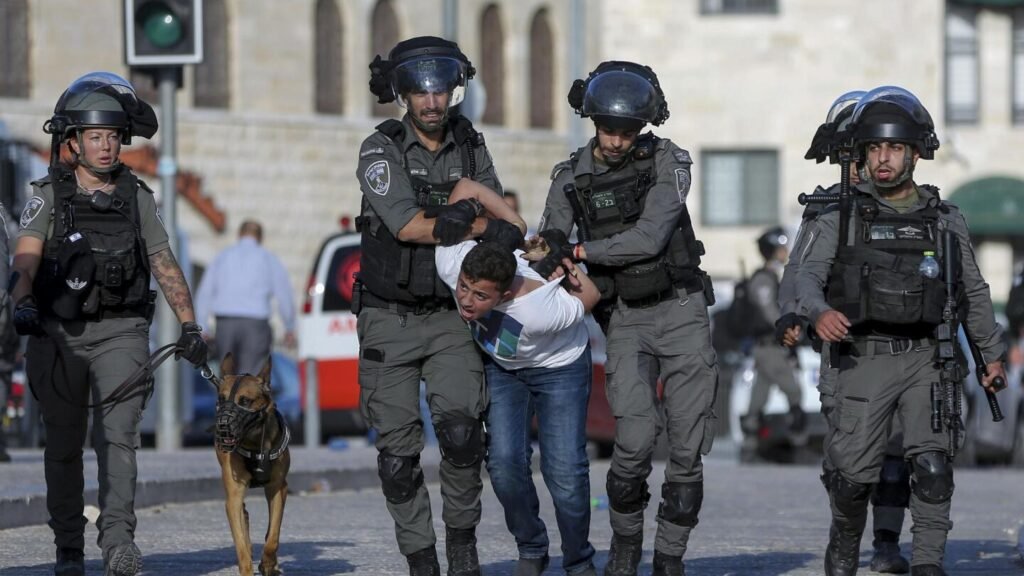A known American political scientist, Samuel Huntington, presented his theory on the impending clash of civilizations in 1993. Based on the premise, it is proposed that after the Cold War, there would be war among the world’s major civilizations, including Western, Islamic, Confucian, Hindu, and others, owing to differences in cultural and religious views.
The ongoing conflict between Israel and Palestine exemplifies the clash between Jewish and Arab nationalisms. This conflict is the result of rival claims to possession of the contested territory. For decades, the conflict has been defined by bloodshed, displacement, and human rights violations, attracting the attention of both regional and international parties.
There is widespread support for the Palestinian cause among the world’s estimated 1.8 billion Muslims because of the deep religious, historical, and political ties between these religious and ethnic groups.
Pakistan, a Muslim-majority nation that has been an active member of the Organization of Islamic Cooperation (OIC) since its inception, has always advocated for Palestinian rights and opposed the creation of Israel. Pakistan’s foreign policy towards Palestine revolves around the goal of creating an independent Palestinian state with Jerusalem as its capital.
The strong ties between Pakistan and Palestine are based on religion, history, and solidarity. In 1945, Quaid-i-Azam Muhammad Ali Jinnah, the founding father of Pakistan, committed that Indian Muslims would not be spectators and would do everything they could to assist Palestinian Arabs. Pakistan has since backed the Palestinian cause while rejecting diplomatic relations with Israel.
Pakistan is in favor of Palestinian self-determination and the creation of a state with Jerusalem as its capital. The ongoing Israeli aggression and atrocities against defenseless Palestinians have infuriated Pakistanis. Pakistan has also asked the international community to act immediately to preserve the human rights and dignity of Palestinians. In its battle for independence and justice, Palestine can rely on Pakistan.
Despite Israeli persecution and violence, Pakistanis have come out in support of Palestinians. People of all ages marched for Palestine in Pakistan. Pakistan has sent humanitarian aid to Palestinian victims, which has already arrived in Egypt and is on its way.
Pakistan has long backed a fair and peaceful two-state solution to the Palestinian issue, which it regards as critical to regional stability. Pakistan has condemned Israel’s repressive measures and urged the international community to preserve Palestinian human rights and dignity.
Pakistan believes that Israel should pay for its illegal and callous violations of international law and UN resolutions. Pakistan is in favor of an impartial probe of Israeli war crimes. Palestinians have the right to self-determination and the establishment of a state with Jerusalem as its capital, and Pakistan has requested that Israel halt its occupation and settlements.
In the conflict between Israel and Palestine, Iran, Russia, and China have formed an informal alliance against the United States and its allies. These nations disapprove of the American-led international order and the diplomatic approach to sanctions. They also have significant economic and geopolitical interests in the Middle East.
In the United Nations Security Council, Iran, Russia, and China have coordinated their positions on the Israel-Palestine conflict, calling for restraint, a cessation, and the establishment of an independent Palestinian state.
In addition, they have offered to act as mediators and provide humanitarian assistance to the Palestinians. Without denouncing Hamas explicitly, they have accused Israel of inciting violence and violating Palestinian human rights and international law.
Pakistan’s and Islam’s reactions to the Israel-Palestine conflict, as well as the idea of a clash of civilizations Cultural and religious differences between the world’s major civilizations, will be the leading cause of conflict in the post-Cold War era.
The Israeli-Palestinian conflict is a prominent example of this conflict. It includes competing claims to land by Jews and Arabs and has attracted attention from players throughout the globe.
Due to religious, historical, and political connections between the two communities, there is tremendous support among the world’s 1.6 billion Muslims for the Palestinian cause.
Pakistan, a majority-Muslim nation and founding member of the Organization of Islamic Cooperation, is a vocal supporter of Palestinian rights and does not recognize Israel.
The Chief of Army Staff of Pakistan has restated the country’s moral and diplomatic support for the Palestinian people and their right to self-determination. Pakistan has also urged the international community to intervene swiftly to safeguard the human rights and dignity of Palestinians in the face of Israeli aggression. Pakistan seeks to avoid a catastrophic clash of civilizations by valuing the uniqueness and independence of every nation and its people.
